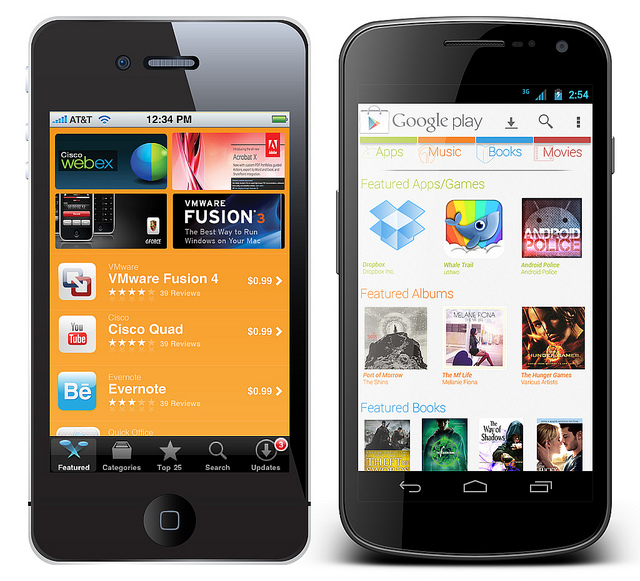Different Ways Companies Are Using Mobile Devices to Sell Products

It’s no doubt that companies exist to sell a product. If you think about it, everybody’s selling a product, even if they’re not aware that they are doing it.
Starbucks has a presence through billboard, commercial, film, internet, mobile app and obviously their stores, among many other things. The reason they exist is to sell coffee, and other coffee related products. Just because you don’t own a Starbucks or any other business, doesn’t mean you’re not out there to sell a product.
Everyone’s Out to Sell
When you go to Facebook or Twitter, or Instagram, or when you write a blog, you’re doing it because you want a response. Nobody puts up a social media profile and then says…”Ehhh, I don’t want any friends…or followers.” It isn’t natural.
So in the way that Starbucks is selling coffee, you too are selling a product, and that product is you. The product would more specifically be your words if you were a writer, but the point is-the world is a giant network of cogs all working and moving as a giant commercial machine.
Now that it has been established that this is a natural way of life, let’s talk about some of the different ways that companies are using devices like the mobile phones that everyone owns to sell a product.
Text Messages are Bigger Than You Realize
What may have started out as an innocent way to chat with friends has developed an entire life of it’s own. Text messages are the form of communication preferred by Americans. In other countries, it is still popular to carry out conversation through messaging apps. The reason is because wireless companies in other companies haven’t made texting as affordable.
Today, companies on a global scale are realizing the power behind text messaging. The way that they use it can be very diverse, but it proves to make operating business more efficient, and it also helps to bring in more customers and boost sales.
Convenience Rules All
People are willing to pay a price for convenience, and the companies know this. Businesses that create mobile apps for customers to browse and buy products are generally way more successful. It’s much easier for a person to shop from their couch and have a product delivered than it is to get up, warm up the car, drive to a store, browse and buy their product, pack it up, and get it back home. Convenience wins almost every time.
Look at your phone right now. Do you have the mobile app for Target, Nordstrom Rack, Modcloth, or Kohl’s? This is how companies sell products. They study you intently and know what you want. It can be a little overwhelming to think about, but remember, everyone is out to sell something.
 The real estate industry seemed to go an entire century with very little change to the way it fundamentally operated. If you wanted to get a new place, you found a real estate agent, drove to see apartments or houses, picked one, and sealed the deal.
The real estate industry seemed to go an entire century with very little change to the way it fundamentally operated. If you wanted to get a new place, you found a real estate agent, drove to see apartments or houses, picked one, and sealed the deal.

